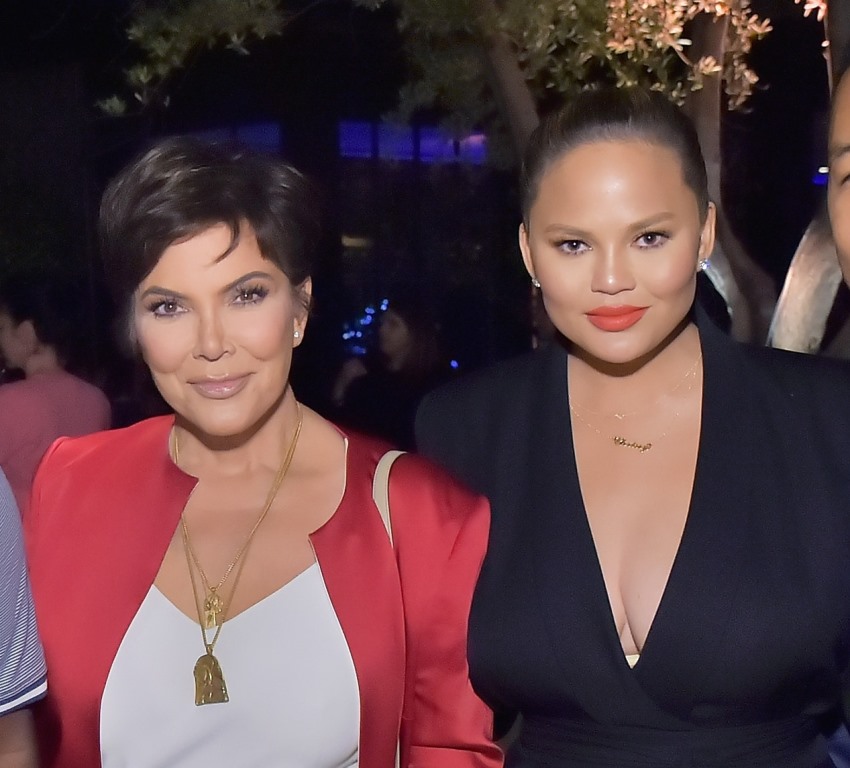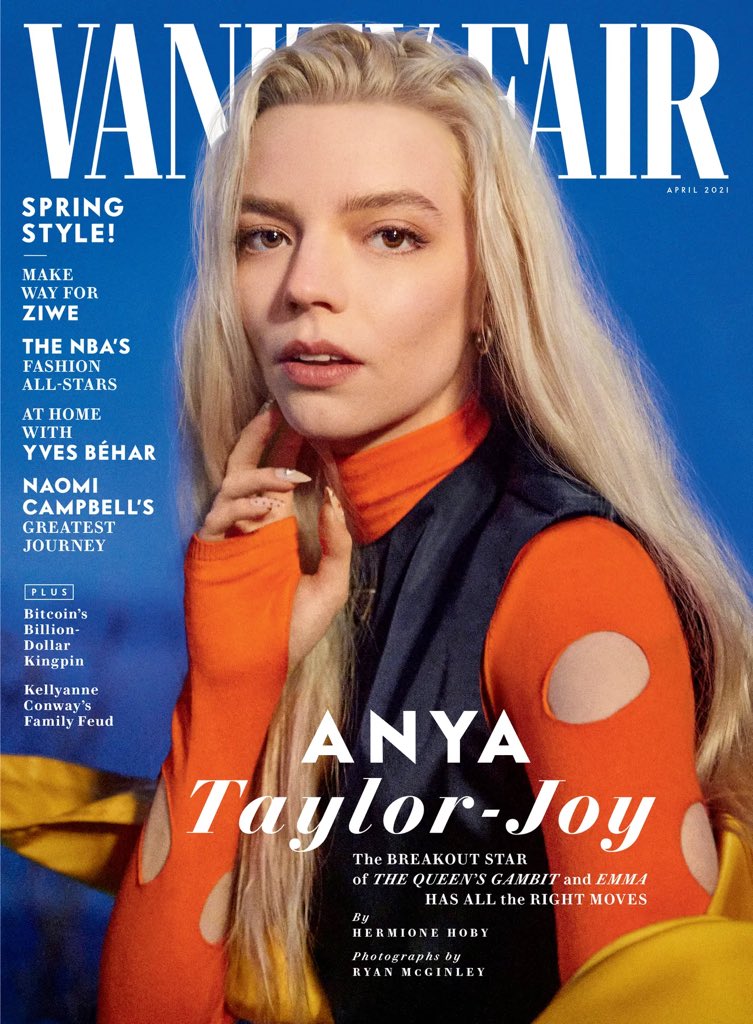Chrissy Teigen goes green and Twitter gets mean



Over the last week or so, Chrissy Teigen has been teasing out a collaboration with Kris Jenner and yesterday revealed it is a line of home cleaning products called Safely. On the company’s Instagram page, it’s described as “plant-powered cleaning” which has kicked up a lot of conversation.
First off, some are disappointed that Chrissy is teaming up with not just a Jenner, but the head Jenner and Kardashian mastermind. This should not be surprising, as they’ve been friends for years (the Karjenners even hosted a baby shower for her) and have a lot of close mutual friends, like hairstylist Jen Atkin. Also in spite of, or because of, the criticisms the Kardajenners receive, their products are a license to print money. SKIMS, Good American, and Kylie’s lip line are all pretty robust. They do have some misses in fashion but overall they have huge marketing power.
Chrissy has also branched out thanks to her wide social media reach and the success of her Cravings line. The criticism I’ve seen for this new line, Safely, is centered around a few things: the “eco” aspect of it and the idea that, in a pandemic, Chrissy Teigen and Kris Jenner are trying to make money off “clean” cleaning, a loaded term.
First, the veracity of the “plant-powered” claim. Greenwashing (a deceptive marketing spin to position products as environmentally friendly) is rampant and very hard to spot because there are little rules around how words like “clean”, “plant-based”, “plant-powered”, and “eco-friendly” are used. Critics of this kind of marketing say that slapping a word on a box doesn’t really tell a consumer about the process behind the product, which is where much of the environmental damage can come from.
Still, the demand for these products has grown and celebrities have been all over it. Jessica Alba was a pioneer in this space and launched The Honest Company in 2012 and since then has taken its fair share of hits (a failed acquisition attempt, bloated evaluation, issues with the safety of products, questioning of ingredients, and multiple competitive brands). I recently browsed the site and was impressed with the detailed information they now provide, including where the materials are grown and how they are processed from start to finish. Then of course there’s Goop, the doyenne of “clean beauty.” But what does that mean?
Some users on Safely pointed to an Instagram account called The Eco Well, which I had not heard of. It is a consultation group that focuses on debunking the greenwashing in cosmetics, agriculture, and food using scientific evidence and studies. As you can imagine, these are very heated and contentious topics (for example, they are no fans of the EWG). One thing I read on the site that made a lot of sense to me is that it’s not the product that is poison, but the dosage. So many of the things that we are told make a product “dirty” are completely safe and harmless and so many of the “clean” formulations use ingredients that could be toxic.
Safely’s team does not seem prepared for an informed customer and hasn’t been answering questions. Many of the comments on its Instagram ask about the packaging (is it plastic?) and the process behind these products: what makes Safely clean? What does plant-based mean? What is the concentration of essential oils? How effective is it at killing germs, which is kind of a priority during a pandemic? Many also point out that it is single-use packaging. There are so many greenwashed items in big box stores and because of her deal with Target, I’m guessing Safely will be taking that route alongside subscriptions. (Note: there are tons of small lines doing great work in this area so try to look local first – in Vancouver I use Sapadilla and love it. Some stores even have refillable options so bottles can be reused.)
Then there’s the disconnect of millionaires (and maybe one billionaire?) selling cleaning products. Say what you will about Gwyneth Paltrow, but she absolutely gets high off her own supply. I have no doubt that her bubble of delusion is well-stocked with Goop products. And she will straight up tout clean beauty on one day and fillers the next without a hint of shame. But if we are talking cleaning… well… when was the last time Kris Jenner cleaned a toilet? Or Chrissy Teigen scrubbed toothpaste out of the sink? They are selling us a product that maybe they would use in their homes, but aren’t made for their use. And people are not buying that aspect of it.
This criticism has prompted a reaction from their fans too, mostly centered around “women supporting women.” I’ve thought about this somewhat as Kendall Jenner just went through a mini scandal with her tequila line, which some called cultural appropriation. George Clooney has a tequila line, as does The Rock. So does Nick Jonas. I don’t think I’ve seen any of them be accused of cultural appropriation. But is this sexism or just a natural consequence of being part of a family that has ripped off Black culture and dabbled in appropriation many times over? Have the Karjenners earned the skepticism?
Chrissy has responded to comments on Twitter calling people “so mean” for pointing out that, um, promoting naturalness when there’s some unnatural beauty happening in the face, body and hair is hypocritical.
https://twitter.com/chrissyteigen/status/1374250847899512833
https://twitter.com/chrissyteigen/status/1374577726540017669
Is this fair? I honestly don’t know because as we all rethink the way women are talked about in media, we need to look at our biases and internalized sexism and how dated these “stay in your lane” conversations are, particularly the ones that punish women for living up to a beauty standard that is perpetuated by society.
On the flipside, there’s an exploitive aspect to this kind of marketing because women do the vast majority of purchasing for households and these brands lean heavily on corporate girlboss feminism, which ties into the wellness playbook that green equals clean and clean equals good/happy/healthy/wealthy. Some of these brands want to market exclusively to women for a product that is typically bought by women but then want to be free from criticism from women because they are headed by women. Why is it OK for us to be marketed to but not OK for us to criticize any aspects of the product or marketing?
These questions didn’t start with Kris Jenner and Chrissy Teigen and even with a slightly bumpy start, I suspect this stuff will sell like hot cakes. Not sure if it’s a win for the environment but the one thing that keeps winning is Kris Jenner’s bank account.

